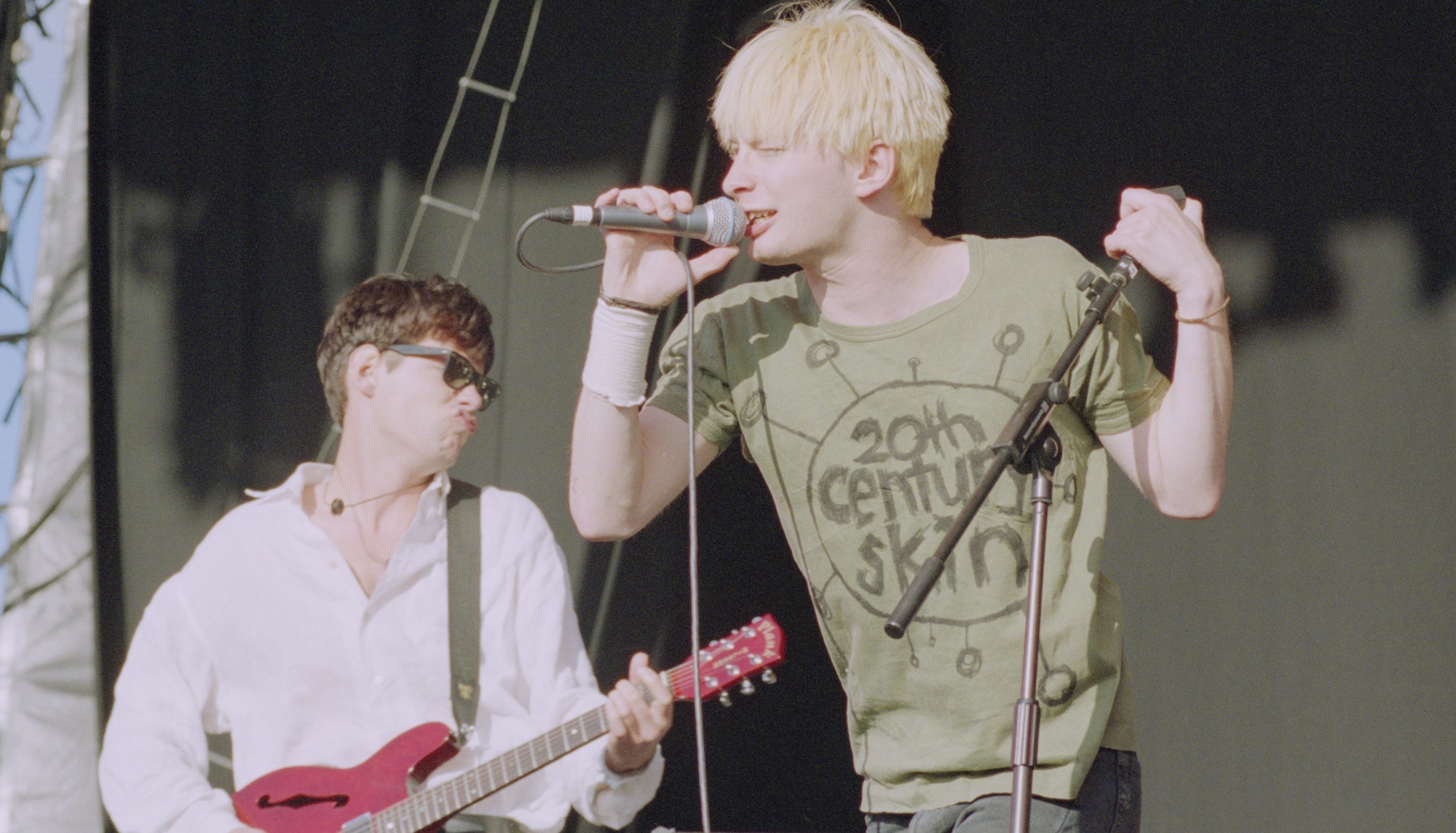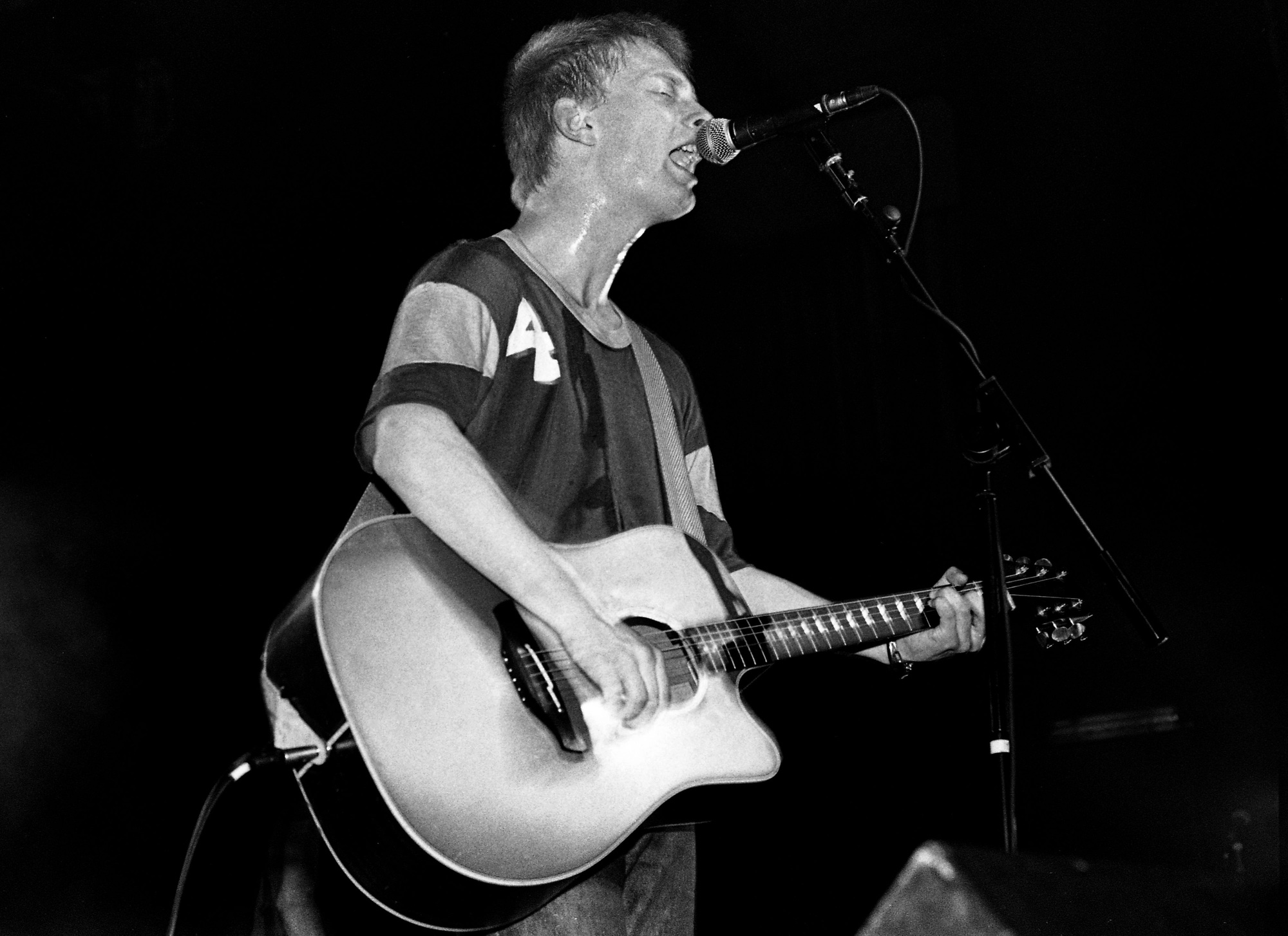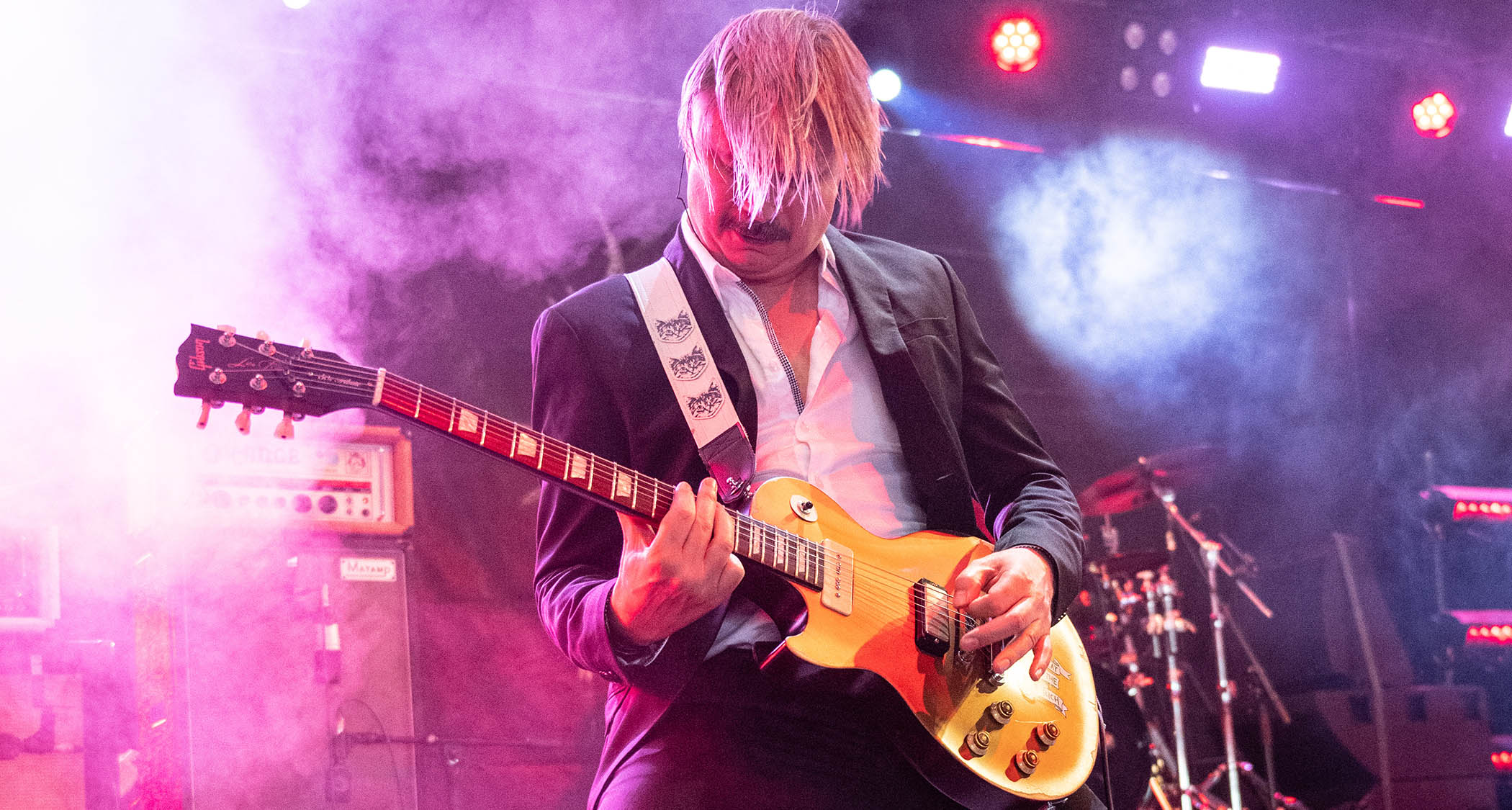“At one stage it sounded like Guns N’ Roses’ November Rain. It was so pompous and bombastic – just the worst”: It was a “nightmare” to record and reduced Thom Yorke to tears – but this difficult Radiohead song went on to be a viral smash
Inspired by seeing Jeff Buckley in concert, Thom Yorke wrote this stunning power ballad of sorts while under pressure to produce a follow-up to the band's breakthrough hit, Creep. In the end, it was a huge mixing mistake that helped make it a classic, and a hit – 30 years later

All the latest guitar news, interviews, lessons, reviews, deals and more, direct to your inbox!
You are now subscribed
Your newsletter sign-up was successful
If you happened to be watching the second season of the hit Apple TV sci-fi show Severance as it aired while also regularly using TikTok, there's a decent chance your algorithm at some point guided you to one of the many fan-made edits of scenes involving the show's dual love stories.
A whole bunch of these were soundtracked by the climactic third verse of Radiohead's Fake Plastic Trees. (Spoilers abound in these videos, if you're interested in the show and haven't seen it yet).
Oh, and if a grittier show like The Bear is more your speed, don't worry! There are plenty of Fake Plastic Trees-backed montages of Jeremy Allen White alternately yearning, brooding, and crashing out as well.
And to think, Fake Plastic Trees hasn't even been Radiohead's biggest moody-'90s-opus-turned-viral-hit of late, a distinction that goes to Let Down, a track from the alt-rock legends' 1997 milestone, OK Computer, that was so polarizing within the band that it nearly broke them up.
Improbably, the song made its way into the Billboard Hot 100 charts earlier this year, where – as of mid-November – it still remains.
Fake Plastic Trees, though, has an even more dramatic backstory than its younger viral counterpart.
Radiohead frontman Thom Yorke was famously inspired to write the song after seeing the late Jeff Buckley in concert.
All the latest guitar news, interviews, lessons, reviews, deals and more, direct to your inbox!
“When we were doing the second record [1995's The Bends], I went to see Jeff Buckley before he died. And it reminded me of this vulnerable part of me that I was choosing to hide,” Yorke told author Jason Thomas Gordon for his The Singers Talk book.
“I remember I recorded Fake Plastic Trees on my own to begin with. Then, when we came together to listen to it, the others said, ‘We’ll use that!’ and I was like, ‘No, no, we can’t use that, it’s too vulnerable. That’s too much me.’”
Perhaps unsurprisingly, the process of capturing a song that raw and personal on record was an exhausting one, full of fits and starts. Add to that expectations from the C-suite at the band's label, EMI, who were hopeful that the vulnerability of the song would connect with the public in the same way the band's equally vulnerable blockbuster breakthrough hit, Creep, had the year before.
Speaking to Guitar World in 1998, Yorke described the Fake Plastic Trees sessions as simply, “a fucking nightmare.”
“There was one stage at the first session when it sounded like Guns N’ Roses’ November Rain,” Radiohead guitarist Ed O'Brien scoffed in the same interview. “It was so pompous and bombastic, just the worst.”

In the end, the song got some of its character back from, what else, a mistake.
“Paul [Kolderie, who mixed The Bends] missed a cue, so the electric guitars don’t come in at the right place,” Yorke told Guitar World. “It was a mistake, but we kept it.”
You can hear said mistake by comparing the studio version above to the vintage live performance of the song on Late Night with Conan O’Brien below.
Ed O'Brien and Jonny Greenwood tear their way in at the onset of the third verse, whereas in the studio version, Yorke and his acoustic – and the rhythm section – mostly carry matters while Yorke sings, “She looks like the real thing.” O'Brien and Greenwood then SWAT team their way in time for Yorke to spit the verse's second line, “She tastes like the real thing.”
Some, like this writer, would argue that that delayed eruption gives Fake Plastic Trees its greatest power, and that it's the reason why you can find that moment in all of the above montages.

Speaking to Jason Thomas Gordon, Yorke confirmed a long-rumored story that he cried hearing the playback of the song for the first time.
“When you record, you’re going through one set of feelings, but the one thing you’re not really aware of is you,” he said. “You’re not aware of your own identity, so it’s like meditating.
“Even when you play, if you perform something well, you have a sort of feeling that goes beyond that. You’re not even aware of your own vulnerability, you’re just off somewhere, and then you come back. It’s like seeing yourself in the mirror for the first time, catching yourself unaware.”
Though famous for their drastic, uncommercial artistic left turns and unwillingness to simply play the hits onstage (especially their biggest), Radiohead have noticeably nodded to their recent viral hits during their ongoing run of European shows – their first anywhere since 2018, with both Let Down and Fake Plastic Trees making more frequent setlist appearances than in years' past.
At the time of its release, Fake Plastic Trees wasn't the hit EMI wanted. But hey, what's a 30-year wait?
Jackson is an Associate Editor at GuitarWorld.com. He’s been writing and editing stories about new gear, technique and guitar-driven music both old and new since 2014, and has also written extensively on the same topics for Guitar Player. Elsewhere, his album reviews and essays have appeared in Louder and Unrecorded. Though open to music of all kinds, his greatest love has always been indie, and everything that falls under its massive umbrella. To that end, you can find him on Twitter crowing about whatever great new guitar band you need to drop everything to hear right now.
You must confirm your public display name before commenting
Please logout and then login again, you will then be prompted to enter your display name.


